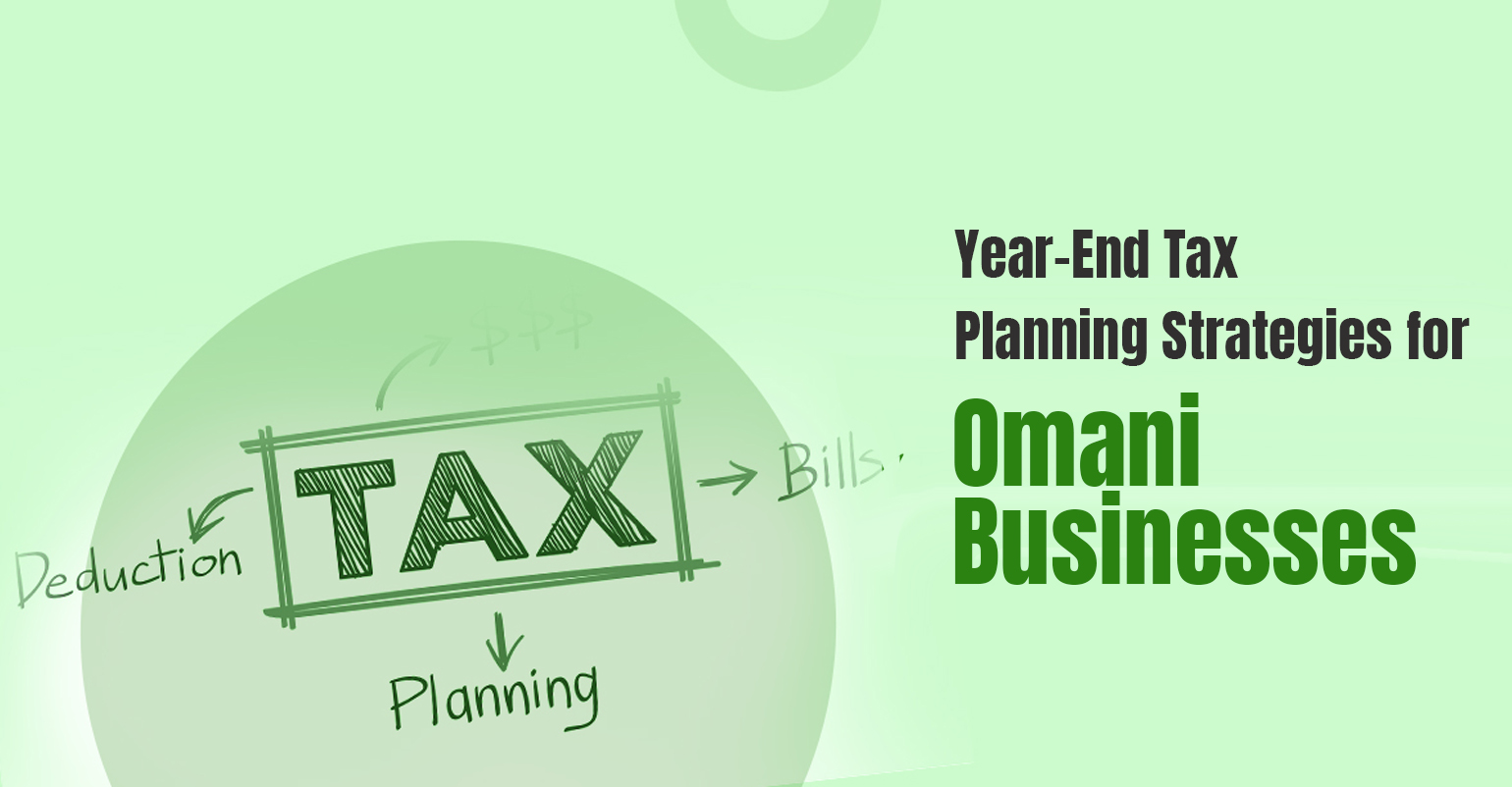Tax planning is a crucial aspect of business operations, especially as the fiscal year comes to a close. For businesses in Oman, effective year-end tax planning not only ensures compliance with the country’s tax laws but also helps optimize financial outcomes. This guide outlines essential strategies for Omani businesses to manage their tax obligations effectively while maximizing available benefits.
Understanding Omani Tax Laws and Regulations
Oman’s tax framework is designed to regulate and streamline business operations while promoting transparency. Familiarity with these regulations is the first step in efficient tax planning.Key Tax Laws in Oman:
- 1. Income Tax Law: Governs corporate income taxation, including applicable rates and exemptions.
- 2. Value Added Tax (VAT) Law: Introduced in 2021, VAT applies to goods and services at a standard rate of 5%, with specific exemptions and zero-rated categories.
- 3. Customs Law: Regulates duties on imports and exports, providing exemptions for certain goods.
- 4. Tax Treaty Network: Oman’s agreements with other countries aim to avoid double taxation and promote international trade.
Tax Planning Strategies for Omani Businesses
1. Income Tax Planning:
- ● Deferring Income: Postpone income recognition to the next fiscal year to reduce current taxable income.
- ● Accelerating Expenses: Record deductible expenses within the current year to lower taxable income.
- ● Utilizing Deductions and Exemptions: Leverage industry-specific and government-mandated tax reliefs.
- ● Evaluating Business Structures: Restructure operations to benefit from tax-efficient arrangements.
2. VAT Planning:
- ● VAT Registration and Compliance: Ensure timely registration or deregistration, depending on turnover thresholds.
- ● Accurate VAT Returns: File VAT returns meticulously and ensure timely payments.
- ● Utilizing VAT Exemptions: Apply for zero-rating or exemptions where applicable.
- ● Transaction Planning: Assess VAT implications for major transactions to minimize liabilities.
3. Customs Duty Planning:
- ● Understanding Duty Rates: Know the applicable customs duties for your business’s imports and exports.
- ● Applying for Exemptions: Utilize exemptions for specific goods or industries.
- ● Efficient Documentation: Ensure proper filing of customs declarations to avoid delays or penalties.
Tax-Efficient Business Structures
The choice of business structure significantly impacts tax liabilities.1. Free Zone Companies:
- ● Benefits: Tax exemptions, 100% foreign ownership, and minimal regulatory hurdles.
- ● Applicability: Ideal for export-focused businesses or those operating within free zones.
2. Limited Liability Companies (LLCs):
- ● Benefits: Flexibility and limited liability for shareholders.
- ● Tax Implications: Subject to corporate income tax but eligible for deductions and reliefs.
3. Branch Offices:
- ● Benefits: Allows foreign companies to establish a presence without forming a separate legal entity.
- ● Tax Considerations: Profits generated in Oman are taxed locally.
Tax Loss Utilization and Carry Forward
1. Tax Loss Utilization:
- ● Overview: Offset current losses against taxable income to reduce tax liabilities.
- ● Application: Ensure proper documentation and compliance to benefit from this provision.
2. Tax Loss Carry Forward:
- ● Rules: Losses can be carried forward for up to five years.
- ● Advantages: Helps businesses stabilize tax obligations across fluctuating income cycles.

